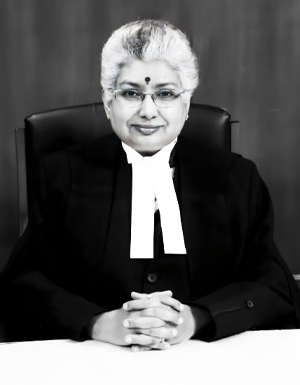
Meet Justice B.V. Nagarathna and her Notable judicial decisions
Justice B.V. Nagarathna, born on October 30, 1962, in Bengaluru, is a prominent judge of the Supreme Court of India and is poised to become the country’s first woman Chief Justice in 2027. The daughter of former Chief Justice of India E.S. Venkataramiah, she has built a distinguished career marked by integrity, scholarship, and a commitment to social justice. After obtaining her law degree from Delhi University in 1987, Nagarathna practiced in constitutional, commercial, and administrative law before her elevation to the Karnataka High Court in 2008. She became a permanent judge in 2010 and served until her appointment to the Supreme Court in August 2021.
Throughout her judicial career, Justice Nagarathna has delivered several significant judgments, particularly in constitutional and commercial law, and has been an advocate for judicial reforms and access to justice. She is recognized for her clarity in legal reasoning and her willingness to uphold constitutional values, even in the face of dissent.
Landmark Judgement: Demonetisation Case (2023)
Justice Nagarathna’s most notable and widely discussed judgment is her dissent in the Supreme Court’s 2023 decision on the constitutional validity of the Indian government’s 2016 demonetisation policy. While the majority upheld the government’s move, Justice Nagarathna dissented, declaring the demonetisation unlawful on legal grounds. She argued that the government could not have implemented such a sweeping measure affecting the entire economy solely through a gazette notification, and that the process lacked adequate legislative oversight. Her dissent was lauded for its rigorous analysis of the separation of powers and the need for procedural safeguards in executive decision-making.
Other Noteworthy Judgments
Media Regulation (2012): Justice Nagarathna called for examining statutory regulation of broadcast media to counter fake news, while warning against excessive government control and advocating for self-regulation.
Vehicle Taxation (2016): She ruled Karnataka’s lifetime tax on out-of-state vehicles unconstitutional, reinforcing the limits of state taxation powers.
Temple Labor Laws (2019): She held that temples are not commercial institutions, exempting them from certain labor law provisions.
Education Policy (2020): She upheld government policy standardizing admissions in private and public colleges during the COVID-19 pandemic, balancing institutional autonomy with public interest.
Justice B.V. Nagarathna’s jurisprudence reflects a steadfast commitment to constitutionalism, individual rights, and social welfare, making her one of the most influential judges of her generation












comments